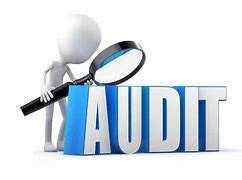Audits

Sanitary District No.5 of Marin County hires an auditor to conduct annual audits of it financial statements through the Fiscal Year (July 1- June 30) as required by law. The minimum audit requirements are listed below:
§ 1131.2. Minimum Audit Requirements.
(a) The audit shall be made in accordance with generally accepted auditing standards. Various auditing procedures are suggested and described on pages 41 through 69 of the American Institute of Certified Public Accountants publication Audits of State and Local Governmental Units. No hard and fast rules can be set down as to the specific procedures that should be taken. Professional judgment must be exercised. Following are general statements that the county auditor or independent accounting firm should consider in preparing an audit program in connection with the audit of a California special district.
(1) A proper study and evaluation of the existing internal control and the financial organizational structure should be made. The extent to which an auditor should go in testing the evidential matter supporting his opinion on the financial statements depends on the effectiveness of the district's system of internal control.
Sufficient competent evidential matter is to be obtained through inspection, observation, inquiries, and confirmations to afford a reasonable basis for an opinion regarding the financial statements under examination.
If the internal control is so deficient that an auditor must disclaim his opinion in this regard, the reason for this disclaimer must be set forth in the audit report.
(2) The auditor should review the laws applicable to the financial transactions of the district. For instance, all special districts are subject to a uniform accounting system prescribed by the State Controller. Should there be indications that the district may have failed to comply with legal requirements, the transactions may be referred to proper legal counsel for interpretation of the applicable law. Noncompliance should be commented upon in the report and, if necessary, the auditor's opinion should be qualified, disclaimed or adverse.
(3) The district's report of financial transactions to the State Controller should be reviewed to see that it agrees with the official records of the district for the period. The State Controller should be informed of any material difference.
(4) A review should be made of the previous audit report workpapers and program if available.
(5) The auditor should ascertain what funds are maintained and by what authority or under what circumstances each fund maintained was created.
(6) The auditor should ascertain the basis of accounting, that is, cash, accrual or modified accrual. Accrual is the basis for enterprise funds and modified accrual is the basis for non-enterprise funds. The cash basis is no longer approved for special districts.
(7) The auditor should take a trial balance of the accounts of each fund and should list both opening and closing balances. The opening balances should be compared with the amounts shown in the audit report for the previous period, if any, and any difference should be investigated and reconciled.
(8) A summary of the financial data included in the minutes or other official records of the proceedings of the legislative body should be prepared. Expenditure authorizations and the appropriations made to cover the authorizations should be confirmed.
(9) The auditor should verify the balance of cash on hand.
(10) The auditor should reconcile bank accounts including cash on deposit with county treasurer as of the balance sheet date and such other times as is necessary. He should obtain confirmation from depositories for (1) all bank accounts, time certificates or savings and loan accounts, and (2) collateral securing such accounts, if applicable. Collateral should be examined or confirmed with the depository holding the collateral as trustee. The auditor should determine the adequacy and propriety of the collateral pledged.
(11) The auditor should test the tax levy, tax collection and delinquencies whether processed by the district or the county.
(12) The collection and recording of all ascertainable revenues should be tested during the period under audit. The test should be sufficient to determine that receipts have been recorded in the proper funds and period.
(13) The auditor should determine:
(A) That the expenditures were properly authorized and incurred and are proper charges to the fund and appropriation against which they have been charged.
(B) That the expenditures are supported by the proper documents and that the documents are so marked as to prevent their reuse. In this connection, it should be ascertained whether noncash expenditures, that is, interdepartmental transactions are supported by adequate documentation and were properly recorded.
(14) A review should be made of nonrevenue receipts and nonexpense disbursements to determine if they were legal and properly recorded.
(15) All other assets such as investments, accounts receivable, inventories, paid expenses, fixed assets and similar items should be verified in accordance with generally accepted auditing standards.
(16) All liabilities such as accounts payable, notes payable, contracts payable, judgments and similar items should be verified in accordance with generally accepted auditing standards. Proper authorities should be contacted to ascertain existence of any possible contingent liabilities.
(17) The auditor should verify the fund balance and reserve accounts of all funds.
Downloadable Copies of Annual Audits Below:
SD#5 2023 Audited Financial Statements.pdf2021-2022 Final Audit.pdf2020 2021 Final Audit.pdf2019-2020 Final Audit.pdf2018-2019 Final Audit.pdf2017-2018 Final Audit.pdf2016 2017 Final Audit.pdf2015-2016_Final_Audit.pdf2014-2015Final_Audit.pdf2013-2014_Final_Audit.pdf2012-2013_Final_Audit.pdf2011-2012_Final_udit.pdf2010-2011_Final_Audit.pdf2009-2010_Final_Audit.pdf